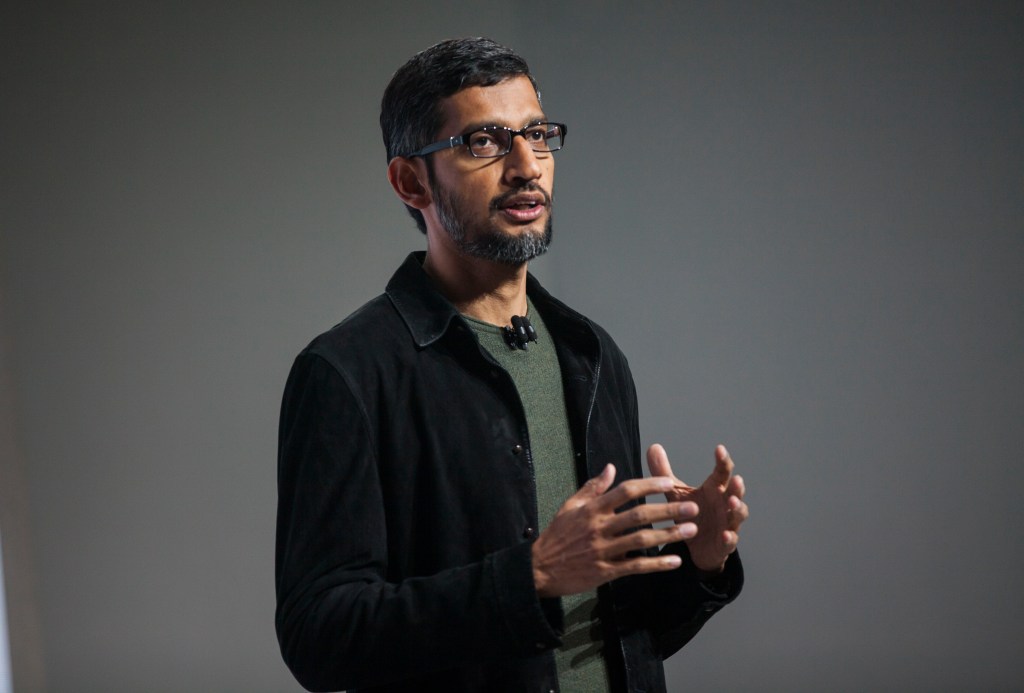Google CEO Sundar Pichai has outlined his disapproval of the impact arising from Trump’s dangerous, inhumane and short-sighted sweeping immigration order, which imposes for at least 90 days a block on entry to the U.S. for citizens (including valid visa holders) from seven countries, blocks indefinitely refugee admittance from Syria and also caps the total number of refugees allowed to enter the U.S. in 2017 at 50,000, less than half the number that came into the country in 2016. The measure also suspends admittance of all refugees for a period of 120 days.
Pichai distributed an internal memo, seen by both Bloomberg and the Wall Street Journal, which said that Google was “upset about the impact of this order,” specifically as it relates to restrictions placed upon “Googlers and their families,” as well as how it could impose “barriers to bringing great talent to the U.S.” Pichai also noted that it has been “painful to see the personal cost of this executive order on our colleagues” in the memo.
Google apparently recalled all employees potentially impacted who were abroad in an effort to get them back in the U.S. before the order took effect, and Pichai noted in his memo that a minimum of 187 Google employees were directly affected by the ban. Google offered an official statement on the matter to Bloomberg:
We’re concerned about the impact of this order and any proposals that could impose restrictions on Googlers and their families, or that create barriers to bringing great talent to the U.S. We’ll continue to make our views on these issues known to leaders in Washington and elsewhere.
Much of the sentiment of the note focused on the impact to Google and its employees, but Pichai did include a more far-reaching comment that “we wouldn’t with this fear and uncertainty on anyone – and especially not our fellow Googlers,” ending with an affirmation that “in times of uncertainty, our values remain the best guide.”
On Friday, Facebook CEO Mark Zuckberberg also posted a note to his personal Facebook page about his concern over “the impact of the recent executive orders signed by President Trump,” though his note falls short of strongly condemning the actions and in fact quickly turns to highlighting how “glad” Zuckeberberg is to hear about Trump’s potential continued support of the DREAMers program, which allows special exceptions for undocumented immigrants who entered the U.S. at a young age, and for Trump’s stated support for continuing to bring talent to the U.S. from outside states.
The internal memo from Google is more generally critical than Zuckerberg’s politic statement, but so far none of these tech leaders have come out with an outright condemnation of Trump’s sweeping, harmful orders, which are also worded to prioritize refugee applicants from minority states in nations where the majority of individuals are Muslim, effecting in practice Trump’s campaign promise of a ban on Muslim immigration. It’s likely that these orders will face strong challenges from courts and lawmakers, but in the meantime it’s already impacting would be refugees who were otherwise set to enter the U.S.
































Comment